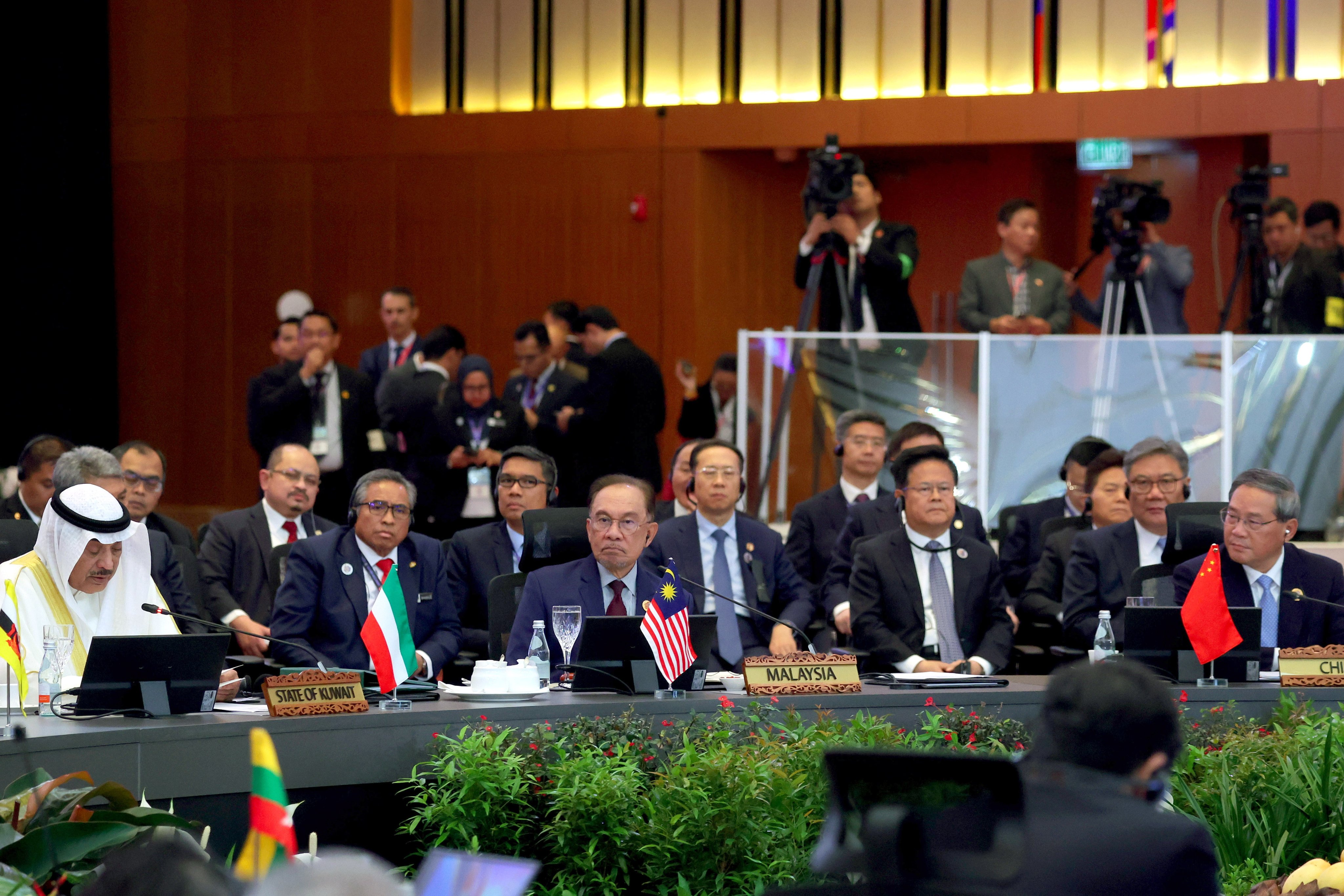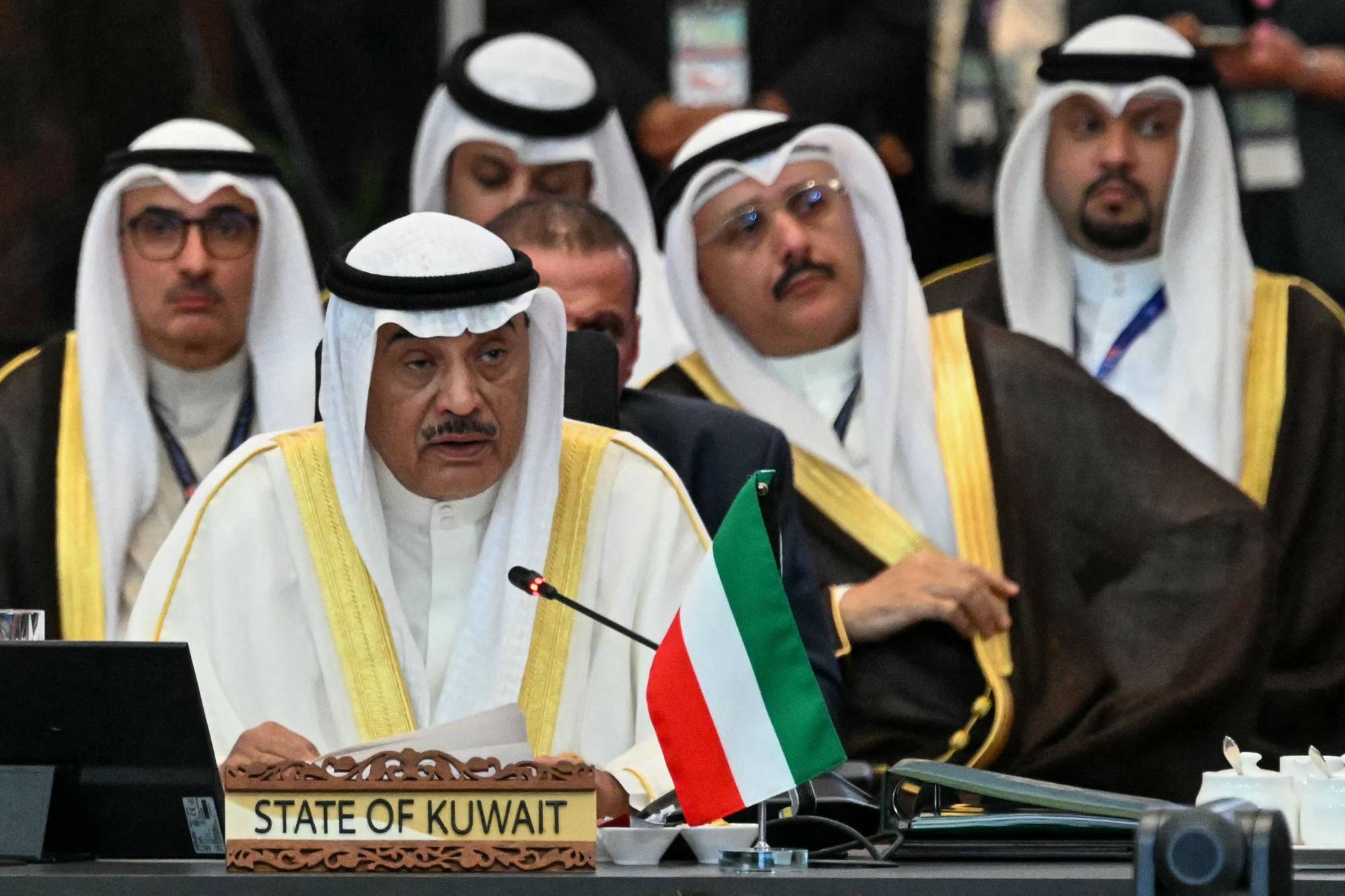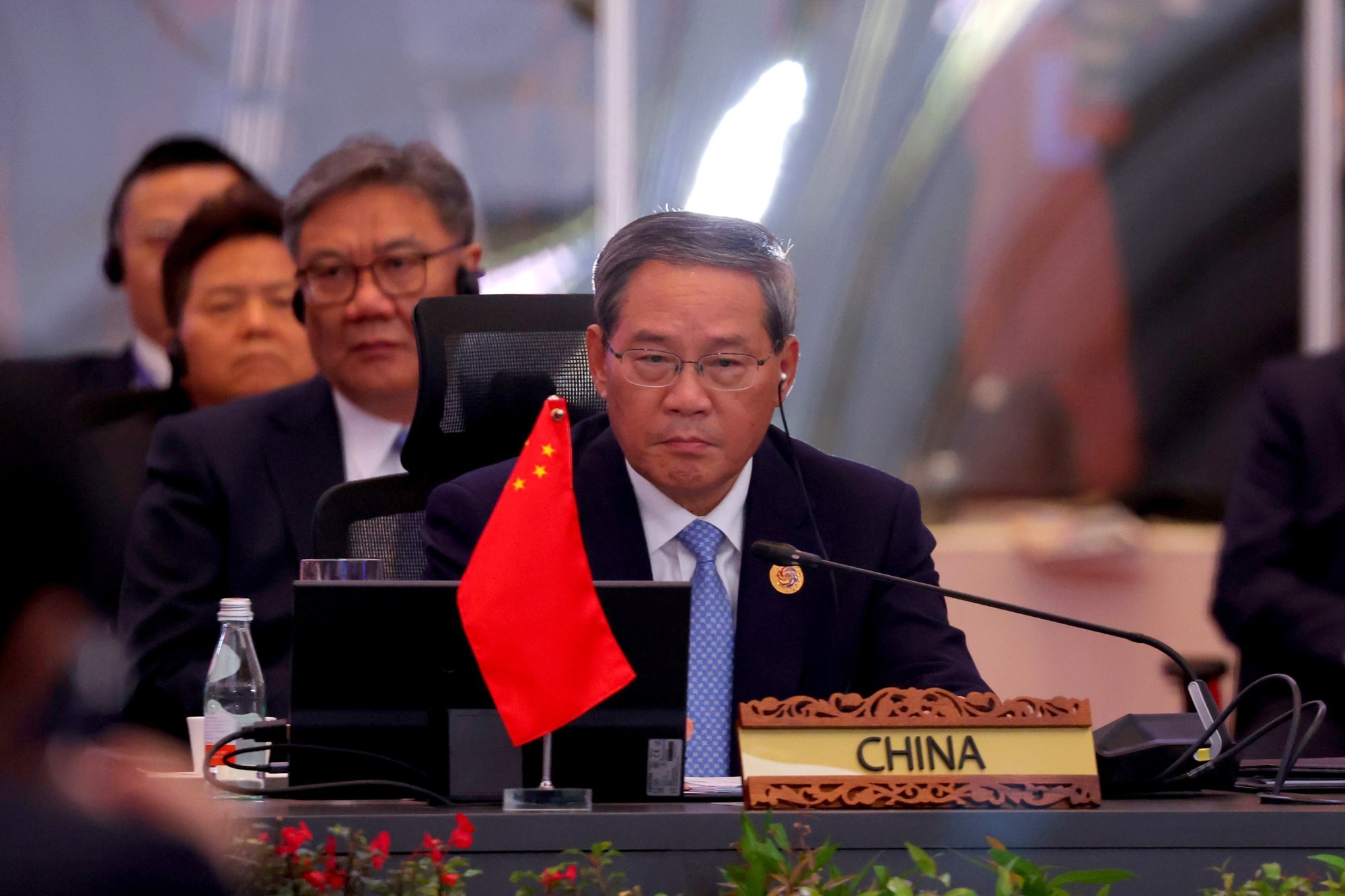Malaysia’s Anwar urges Asean not to ‘sacrifice’ member states over US tariffs
His call at the Asean summit comes as the bloc agrees to widen trade links with the GCC and China to cushion the impact of US tariffs

Asean members must avoid undercutting their neighbours while negotiating on the tariff issue with the US, Malaysia’s Prime Minister Anwar Ibrahim said on Tuesday, as China warned of “heavy blows” from US protectionism pummelling the world economic order.
The 10-member Association of Southeast Asian Nation (Asean) met over two days in Kuala Lumpur to discuss its next steps to address the “reciprocal” tariffs that US President Donald Trump had paused until early July.
Asean leaders also discussed Myanmar’s plunge into civil war and humanitarian crisis, as well as agreeing to admit East Timor as Asean’s 11th member by October.
Anwar has pressed Washington to hold an Asean-US summit later in the year so that the bloc of 660 million people can be represented as one, a position suggested by China as it seeks allies in pushing back against Trump’s tariffs.
Four of Asean’s biggest economies – Indonesia, Thailand, Vietnam and Anwar’s own Malaysia – have launched separate bilateral talks with the US in the hope of reducing or securing tariff exemptions for their exports to the world’s biggest economy.
Still, Anwar, who holds the rotating Asean chair, said the bloc came to a consensus that any negotiations with Washington should not be at the expense of any member state or other countries.
“We agreed that we can continue with bilateral [engagements], but never, ever, sacrifice the interests of the ordinary person and the interests of Asean as a whole,” he told a news conference at the end of the summit.

The threat of tariffs of up to 49 per cent on Asean’s US-bound goods has hurt demand for its exports and prompted a flurry of lower economic growth forecasts even after Trump announced a 90-day pause to allow for bilateral negotiations.
To cushion the impact of the sweeping tariffs, Asean is seeking to diversify its trade with other regions. Among them, Asean has agreed to pursue talks with the six-member Gulf Cooperation Council (GCC) for a free-trade agreement, besides pushing to finalise a trade deal with the European Union.
“There is no choice. We must take whatever is necessary … it is something to be done, more concrete. By October we want to see results,” Anwar said.
Asean leaders also held a separate summit with the GCC and China’s Premier Li Qiang to discuss deeper economic cooperation in sectors like the halal industry, logistics, renewable energy and artificial intelligence.
At a gala dinner for the Asean-GCC-China Summit on Tuesday, Li said the three partners accounted for just 5.4 per cent of global trade despite covering about a quarter of the world’s population and economic output.
“It tells us we have great room, potential that can be further tapped. This is leverage we must use in future,” he said.
Li said the global economy was experiencing “profound and complex transformation” that posed a threat to shared values of peace, development and mutually beneficial cooperation.
The tariff-afflicted global trade climate would make cooperation impossible, leaving nations vulnerable to geopolitical rivalry, conflict and confrontation, he said.
“At present, economic globalisation is suffering heavy blows never seen before,” Li said.
“We must stay committed to stay open and remove barriers, only then can we unleash enormous market opportunities.”

China has been on a global charm offensive including reaching out to Asean members in the wake of Trump’s tariffs by offering deeper access to its massive domestic market and cooperation in areas ranging from infrastructure to technology, and emphasising on a rules-based trade order.
China has been Asean’s largest trading partner for 15 years running, with total trade estimated at nearly US$1 trillion in 2024, according to Chinese government data.
Bilateral trade between Asean and the GCC totalled US$130 billion in 2023 with two-way investment flows rising to US$300 million, Anwar said.
On Monday, Malaysia signed an agreement with the GCC to start negotiations towards a free-trade agreement with the bloc, aimed at cutting tariff and non-tariff barriers, promoting two-way business and aligning regulations.
Regarding East Timor, Anwar said on Tuesday that the country had worked hard to fulfil a list of preconditions for full Asean membership and was just short of meeting “one or two conditions”.
Calling the summit in Kuala Lumpur “unprecedented”, Anwar added: “We are quite satisfied. The decision [among Asean leaders] was clearly to agree that they would become accepted as a full member by the next session in October.”